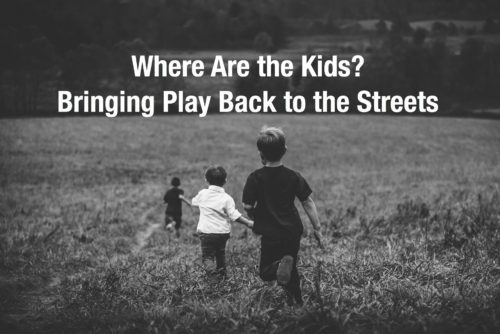There are some things that we, as parents, say as a knee-jerk response. They have been so deeply ingrained in our own childhoods that they come spilling out of our mouths before we can stop them. Here are 5 of those phrases that aren’t quite as innocent as we thought.
1. “I’m leaving! Byyyyyyeee!”
You know those times when you were a child, and your parents were trying to get you to come along but you reeaaally wanted to play just a little bit longer, and then they happily said, “Bye! I’m leaving without you!” As they walked away.
Cue panic! Typically the child comes running after the parent screaming and crying.
“But it works! What’s the big deal?” This may be no big deal to an adult because an adult has the means of finding another way home, the means to survive on their own, and the mental capacity to understand that their sole providers that they are fully dependent on for survival aren’t actually going to abandon them forever out in the wilderness of the big, scary world. This isn’t fair or kind to them.
2. “Don’t cry.” “Stop crying.” “Don’t be sad.”
Apparently crying and sadness are unacceptable feelings. You must smile and feel happy after I tell you what to do even though I know it’s something that you don’t enjoy. Suck it up and do it. And don’t you dare cry about not getting that toy. Don’t you dare cry because I said no.
There is a more innocent version of don’t be sad too. A child is crying because they dropped their ice cream cone and it melted all over the sidewalk. “Aw don’t cry. It’s ok. Don’t cry. We’ll get you another one.” In this scenario a parent feels bad and is trying to comfort the child in a well-intentioned, yet poorly executed way. They are inadvertently telling them that crying is bad. That their emotions aren’t safe to have. That they will do whatever it takes to prevent them from crying. Instead a simple “your ice cream fell. You’re so sad/devastated! I’m here for you.” And if you want/can get a new one, offer that after you’ve validated their feelings.
3. “Shake it off.” “Brush it off.” “You’re ok.” “Toughen up.”
By saying these common phrases, you are telling your child that toughness is what is important. Crying is for weaker mortals. You know the fall looked a bit painful, but to avoid a huge cryfest you tell them shake it off. You’re alright! And they do their best to shake it off while also absorbing the message that tears are unacceptable. Feeling pain is unacceptable. So they stuff those sad feelings deep down inside themselves where they can fester.
4. “You’re a big girl/big boy.”
You’re a big boy now. Big boys don’t wear diapers/breastfeed/get carried everywhere/insert ridiculous arbitrary expectation.
Be a big girl and get in your seat yourself/feed yourself your food/don’t cry when you get a shot.
Saying they should be acting a certain way and aren’t means that they are failing at being their authentic selves. If you have a new baby and your three year old wants to be held like a baby, instead of “big girls don’t want to be held like a baby, you’re a big girl now,” say “Ok!” They won’t ask forever. They just want to know that they’re still as special as this tiny newborn baby occupying everyone’s oohs and aahs.
5. “If you love me, you’ll (insert xyz).”
This could be a number of phrases.
If you love me, you’ll stop doing that.
If you love me, you’ll cook dinner tonight.
If you love me, you’ll do as I ask.
When we say things like this it is putting conditions on our love. Conditional love breeds insecurity, low self-worth, resentment, and deep sadness. No one should manipulate another person to get them to do our bidding. Open and honest conversation is the key to a cooperative family unit.
These phrases may seem small and insignificant, but they have a huge impact on these little people. Being mindful of our words, putting ourselves in our children’s shoes, and speaking to a child how we wish we were spoken to as children can make a huge positive impact on the parent-child relationship, as well as the child’s view of their worth.



No Comments